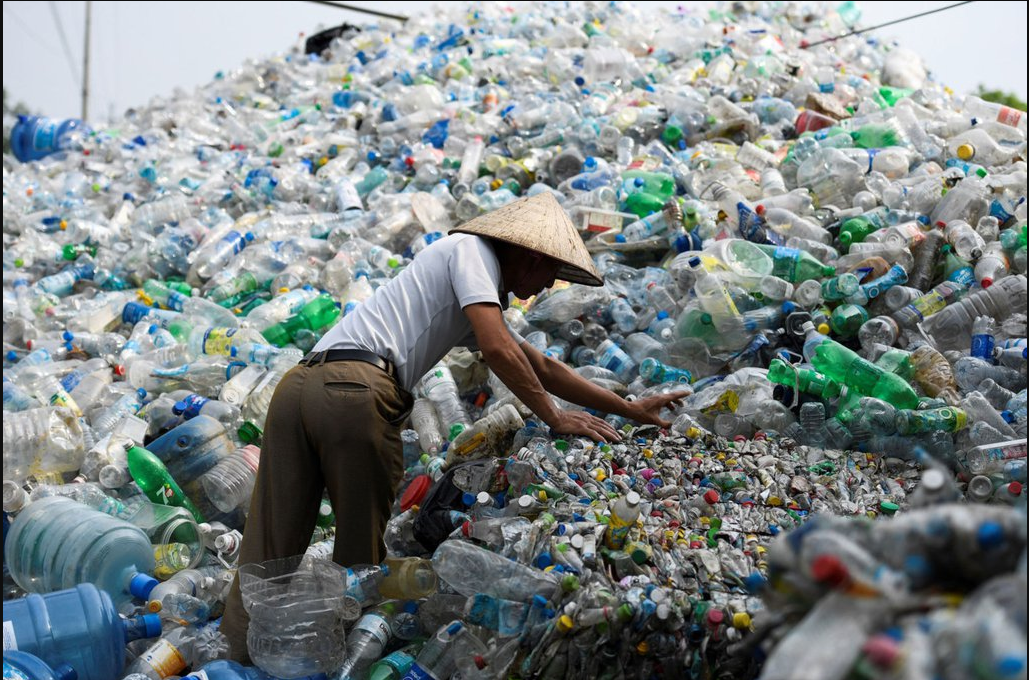
The coronavirus pandemic: Impact on the waste sector
Maintaining the delivery of basic urban service—including waste collection and management—is becoming a growing challenge to cities grappling with the fallout from COVID-19.

Every year the world generates over 2 billion metric tons of municipal solid waste. The World Bank estimates that by 2050 annual waste generation will increase by 70 percent—to 3.4 billion metric tons.
In low-income countries, the volume of waste is expected to triple by 2050, particularly in sub-Saharan Africa.
The rapid growth of waste generation presents serious challenges in emerging markets. When poorly managed, the waste sector has serious health, safety, and environmental impacts—especially in developing countries, where waste is often burned or discarded in unregulated dumps.
Population growth, urbanization, and economic development all exacerbate these challenges. Given the high costs of sustainable solid waste management (SWM), governments are increasingly partnering with the private sector through public-private partnerships to find sustainable solutions.
Because of the current pandemic, governments and their constituents are sensitive to downside risks from the health sector, including negative economic impacts and loss of life.
Efforts to control COVID-19 infection have highlighted the critical need to sustainably manage the environmental impacts of human activity. The crisis has also highlighted the risk of contagion in an interconnected world and the need to focus on sustainable environmental management.
There is an opportunity to engage with governments, both national and municipal, to adopt
more sustainable SWM practices. This requires (a) increased SWM sector funding and cost
recovery from constituents, (b) participation from public, industry, and other waste producers in a comprehensive solution, and (c) development of monitoring and enforcement capacity.
All parties—governments, householders, private sector, local communities, and development
partners—need to participate.
International development institutions can engage with governments in a number of ways:
● Financial Support: Crowd-in financial support such as (a) international financing for GHG
reduction through blended finance, grants, and carbon finance, (b) commercial financing
from domestic and international sources, (c) gradually increasing user tariffs from waste
producers, (d) increased budgetary support from national and provincial governments for
the period of transition to sector viability, and (e) increased private participation in the
waste sector—both to attract financing and improve implementation capacity.
● Advisory Support and Financing Support For PPPs: IFIs, including IFC, can help
municipalities structure appropriate collection, transport, and disposal projects through PPPs
and harness the financial, technical, and managerial resources of the private sector.
● Support the Informal Sector: Measures targeting vulnerable groups could also be put in
place to minimize the disproportionate impact that inadequate waste services typically have
on this group and potential recurrence of infections.
● Public Awareness Campaigns: Social media campaigns and other public marketing
channels can harness public and civil society support for addressing challenges in the SWM
sector, such as poor waste segregation or building capacity for enforcement of SWM
regulations. Programs should also leverage and find workable solutions to integrate the
informal sector into these plans, as they may already be active in source separation.
● Create Formal Plastic Recycling Markets: IFIs can work with plastic producers and
municipal waste management departments to help increase the quantity of recycled plastic
waste, which is in high demand by multinational players to meet their sustainability goals.
The formalization of waste management jobs can also help strengthen the recycling value
chain, improve local industrial competitiveness, reduce poverty, and decrease municipal
spending on SWM and social services.
(With input from the International Finance Corporation)






